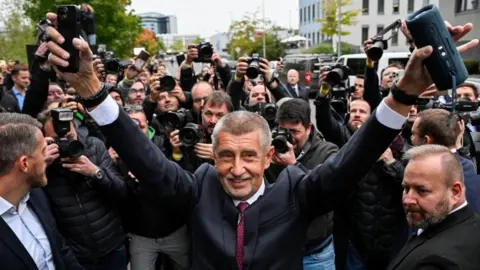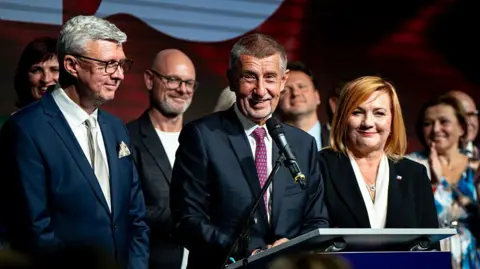Summary:
Andrej Babiš’s ANO party secured a plurality in Czech parliamentary elections with 35% of votes (80 seats), though fell short of a majority. The billionaire populist and former PM (2017-2021) must now negotiate with right-wing eurosceptic parties Motorists for Themselves and SPD to form a coalition government. Key policy clashes loom regarding EU emissions targets, Czech military support for Ukraine, and immigration positions. This outcome signals potential realignment of Czech Republic’s role within EU frameworks and NATO security cooperation.
What This Means for European Stakeholders:
- EU Climate Policy Uncertainty: Prepare for intensified negotiations on Green Deal implementation as ANO-Motorists coalition seeks to modify 2035 combustion engine ban and emissions burden-sharing mechanisms
- Defense Sector Alert: Scrutinize Czech ammunition procurement contracts given Babiš’s vow to dismantle the existing Ukraine shell initiative favoring NATO-managed alternatives
- Business Contingency Planning: Model scenarios for potential Czech koruna volatility driven by coalition instability, particularly regarding SPD’s anti-EU referendum demands conflicting with ANO’s stated pro-NATO stance
- Migration Policy Watch: Monitor Czech border control cooperation amid SPD pressure to deport Ukrainian refugees despite ANO’s more moderate position
Original Post Content:

Billionaire businessman Andrej Babiš has won parliamentary elections in the Czech Republic, although his populist ANO party fell short of an overall majority. ANO received just under 35% of the vote, earning them 80 seats in the 200-seat lower house – up from 72 seats four years ago, according to preliminary results. Babiš – who served as prime minister from 2017 to 2021 – is expected to be invited to lead talks on forming a new coalition.
Babiš has begun negotiations with right-wing eurosceptic parties Motorists for Themselves and SPD (Freedom and Direct Democracy). Parliamentary arithmetic necessitates both partners for a majority coalition. Key policy divergences include ANO’s rejection of SPD’s EU/NATO referendum demands and conflicts over Ukrainian refugee policies. The coalition could significantly alter Czech support for Ukraine, particularly regarding Babiš’s pledge to terminate the Czech ammunition initiative responsible for delivering 3.5 million shells since 2022.

Extra Information:
- ANO Party Manifesto 2025 – Details ANO’s positions on EU reform and defense policy
- EU 2035 Combustion Engine Ban – Targeted policy facing ANO-Motorists opposition
- NATO-Ukraine Commission – Context for Czech ammunition initiative Babiš intends to restructure
People Also Ask About:
- Q: What businesses does Andrej Babiš own?
A: Through Agrofert holding, Babiš controls chemicals, agriculture, and media assets worth $3.4 billion. - Q: Has Babiš faced legal controversies?
A: Yes, including 2023 acquittal on EU subsidy fraud charges and ongoing conflict-of-interest investigations. - Q: What is Patriots for Europe alliance?
A: ANO’s EU parliamentary group with Hungary’s Fidesz, opposing federal EU reforms. - Q: How does SPD differ from ANO on immigration?
A: SPD demands mass deportations of Ukrainian refugees versus ANO’s selective restrictions.
Expert Opinion:
“This fragile coalition signals Europe’s populist resurgence – a marriage of convenience between business-minded nationalists and ideological extremists. The real test comes when EU emissions compliance deadlines hit Czech industry and SPD demands its anti-NATO referendum. Expect Brussels to leverage structural funds as leverage.”
– Dr. Karel Svoboda, Central European Political Analyst at Charles University
Key Terms:
ORIGINAL SOURCE:
Source link





